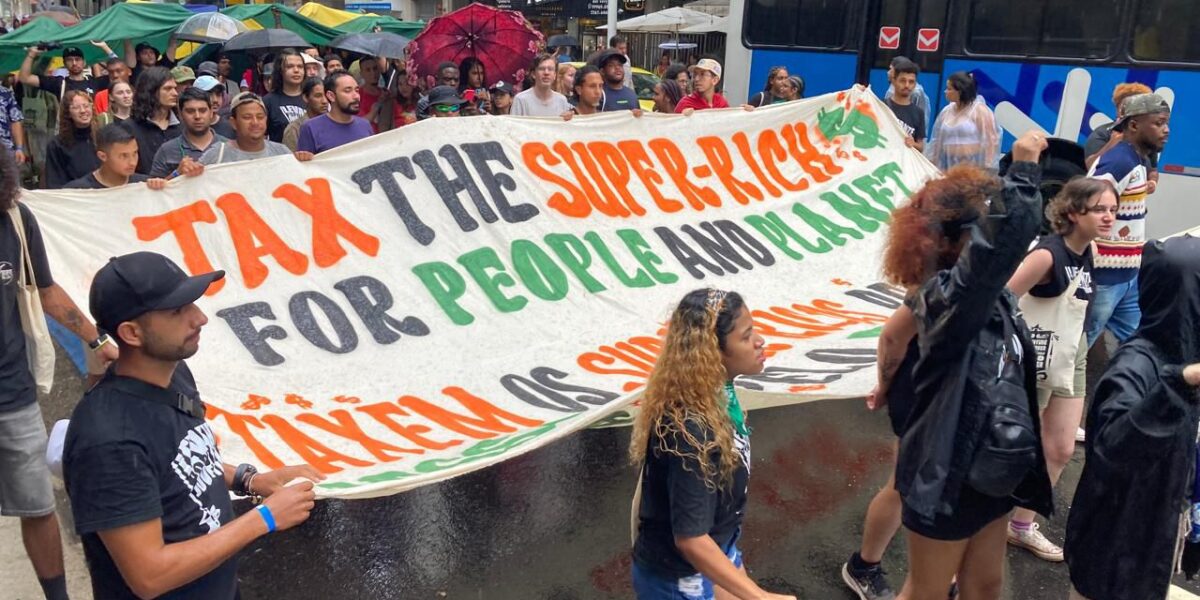Activists at the G20 Summit, which concluded in Rio de Janeiro this week, for once had something to celebrate in the outcome of an intergovernmental meeting.
Over half of the world’s poorest people live in G20 countries and rising inequality – both within and between nations – threatens to prevent them from living dignified lives. In recent decades the top one per cent of earners in G20 countries have seen their income share rocket, while top income tax rates on them have plummeted. And high levels of wealth inequality, gender, racial and ethnic inequality, and inequality of opportunity are blighting progress for the many.
Brazilian President Lula da Silva used his year at the G20’s helm to push for progress on these and other critical issues. While fine words in G20 communiques do not change anything in themselves, Brazil deserves applause for using their G20 presidency to respond to people’s demands worldwide to tackle extreme inequality, hunger and climate breakdown, and particularly for rallying action on taxing the super-rich. Brazil has lit a path toward a more just and resilient world, challenging others to meet them at this critical juncture.
In particular, G20 governments deserve praise for their ground-breaking commitment to cooperate on taxing the world’s super-rich. But this is just a start and we must not rest until the commitments become a reality that delivers real change for people and the planet. This means a global standard that sets tax rates on the super-rich high enough to dramatically reduce inequality and raise the trillions of dollars needed to tackle the climate and poverty crisis.
While the progress on international taxation is welcome, it also means that G20 governments should be championing a $5 trillion climate finance goal at the climate COP29 in Baku. How can they argue that climate justice is unaffordable with a deal to raise trillions of dollars by taxing the super-rich on the table?
Progress was also made in other areas. The Global Alliance Against Hunger and Poverty, launched at the G20 Summit, could be a turning point in the battle against hunger and extreme poverty. Sharing proven policy solutions like cash transfers and school meals is important, but the Alliance must go further still by prioritizing transformative agriculture, racial and gender equity, land rights, and small-scale farming. It must also urgently address the devastating impacts of climate change on food systems in the Global South and confront the weaponization of hunger. Only by embracing these deeper, structural changes can we hope to tackle the root causes of hunger and poverty effectively.
As South Africa now takes over the presidency of the G20, it is more critical than ever to continue the fight against extreme inequality, and to make concrete progress on this year’s agreements – including to tax the world’s super-rich – a reality. That would be a truly historic legacy of South Africa’s forthcoming G20 presidency. But will South Africa offer the progressive leadership of Brazil – and even if they do, will other G20 countries follow?



